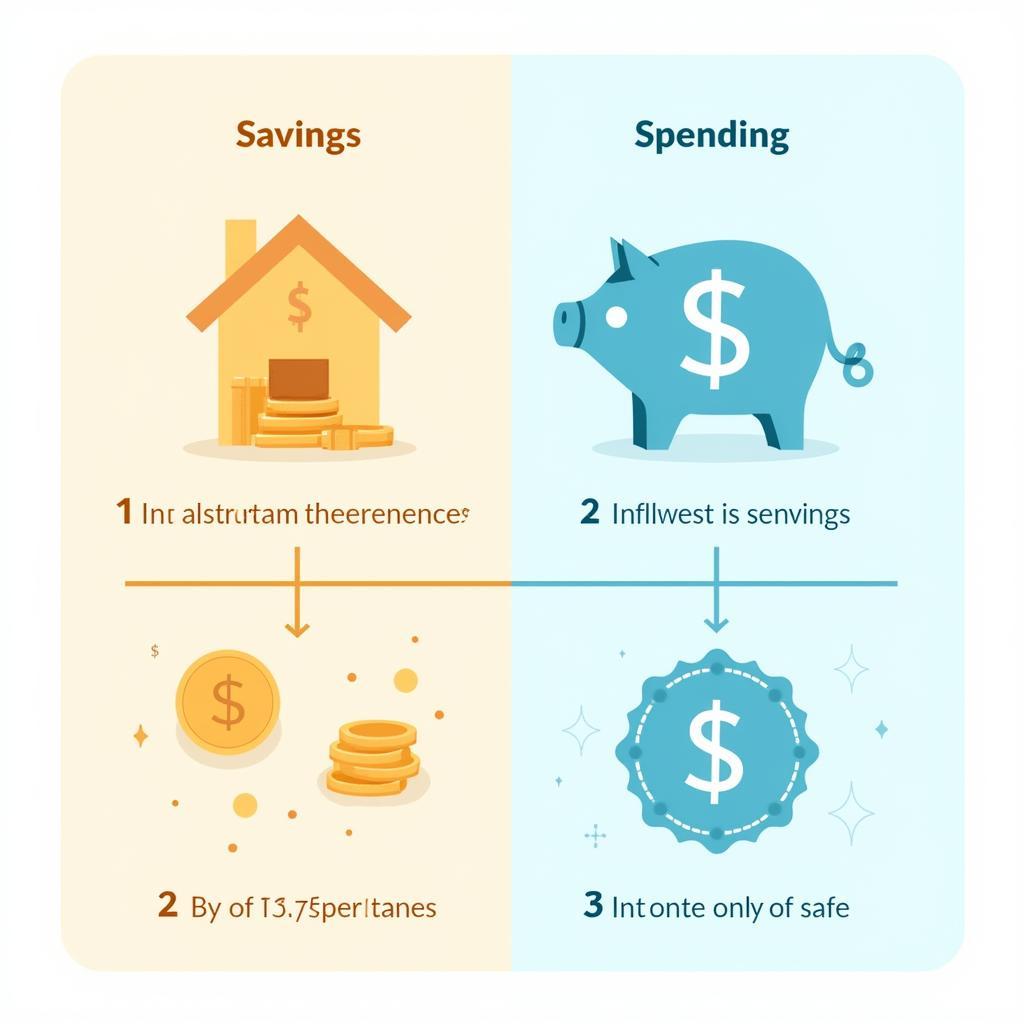Financial management and wealth building through savings has been a recurring theme in IELTS Writing Task 2, appearing approximately 2-3 times annually over the past five years. Based on analysis of recent exam patterns and importance of strategic planning in saving, this topic is likely to remain relevant in future tests.
Analysis of Common Question Types
The most frequently encountered question type focuses on the importance of saving money versus spending it immediately. Let’s examine a recent exam question:
Some people believe that saving money is crucial for future financial security, while others think it’s better to enjoy spending money in the present. Discuss both views and give your own opinion.
Understanding the Question
- Topic: Financial choices between saving and spending
- Task: Discuss both perspectives and provide personal view
- Key elements: Future security vs. present enjoyment
Sample Essay 1 (Band 8.5)
The debate between saving for tomorrow and spending for today represents a fundamental financial dilemma that many face. While both approaches have their merits, I strongly believe that maintaining a balanced saving strategy is essential for long-term financial stability.
Those who advocate immediate spending argue that life’s uncertainties make it prudent to enjoy resources while possible. They contend that inflation can erode saved money’s value, and importance of balancing credit with savings suggests that moderate spending contributes to economic growth. Furthermore, they emphasize that experiences and enjoyment purchased today create lasting memories and satisfaction.
However, proponents of saving emphasize its crucial role in building financial security. Regular saving habits create essential safety nets for emergencies and enable significant future investments. How high-yield savings accounts benefit savers demonstrates that compound interest can substantially grow wealth over time. Moreover, saving instills financial discipline and reduces stress about future uncertainties.
In my view, while enjoying present resources is important, prioritizing savings is fundamental for long-term prosperity. A balanced approach where the majority of income is saved while allowing for moderate current expenditure represents the most prudent financial strategy. This enables both present satisfaction and future security, creating a sustainable path to financial well-being.

Sample Essay 2 (Band 6.5)
Nowadays, people have different opinions about saving money. Some think it’s very important to save for the future, but others prefer to spend money now. I think both ideas have good points.
People who like to save money usually worry about the future. They think saving helps them when they have problems or when they get old. Also, saved money can help their children go to good schools. This is a good way to think because life can be difficult sometimes.
On the other hand, some people like to spend money now. They say life is short and we should enjoy it. They buy nice things and go on holidays. Sometimes they say saved money becomes less valuable because of rising prices.
In my opinion, we should try to do both. We can save some money for important things in the future, but also spend some money to enjoy life now. This way, we can be happy now and also feel safe about the future.
Analysis of Band Scores
Band 8.5 Essay Features:
- Sophisticated vocabulary: “fundamental financial dilemma”, “long-term prosperity”
- Complex sentence structures
- Clear organization and cohesion
- Well-developed arguments
- Appropriate academic tone
Band 6.5 Essay Features:
- Simple but clear vocabulary
- Basic sentence structures
- Adequate organization
- Limited idea development
- Informal tone at times
Key Vocabulary to Remember
- Financial security (n) /faɪˈnænʃəl sɪˈkjʊərɪti/ – state of having stable income/savings
- Prudent (adj) /ˈpruːdənt/ – wise and careful about money
- Compound interest (n) /ˈkɒmpaʊnd ˈɪntrəst/ – interest earned on both initial deposit and accumulated interest
- Financial discipline (n) /faɪˈnænʃəl ˈdɪsəplɪn/ – ability to control spending habits
- Long-term prosperity (n) /lɒŋ-tɜːm prɒˈsperɪti/ – sustained financial success
Consider practicing with this similar topic: “The role of financial education in promoting saving habits among young people.” Share your essays in the comments section for feedback and discussion.